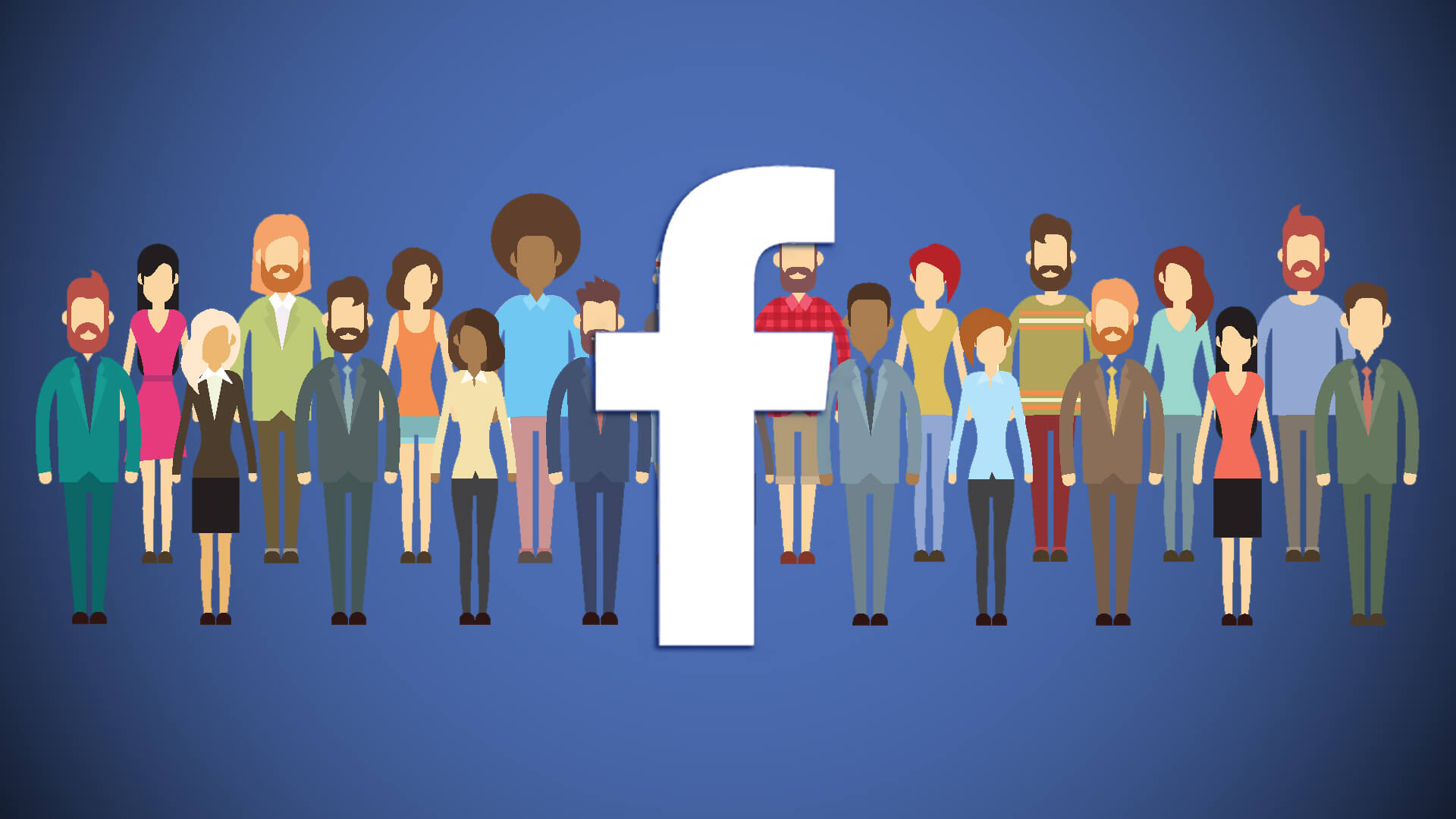
Introduction
This online journalism study chooses the BBC News and BuzzFeed News to conduct a comparative analysis between them. Both of the news contents are related to Facebook’s plan on banning white nationalism and separatism, while the editors set up the view and designed the layout in different patterns. In general, there are three main parts of this analysis: Biography of the publications; Target audiences and user demographics; Theories and analysis.
BBC News Background
The British Broadcasting Corporation(BBC) is the oldest national broadcasting organization around the world. The history of this corporation could be traced back to 1922 as a private company, British Broadcasting Company Ltd. John Reith. The broadcasting of the British Broadcasting Company cemented a loyal audience within the nation, which contributed to its transformation from private company to non-commercial organization in 1927. Since 1927, the organization is known as the British Broadcasting Corporation with public service purpose. In April 2014, the Corporation established BBC World Service broadcasting in 28 languages and providing online services in Arabic and Persian. During the past decades, the BBC has become the world’s largest broadcaster and has played a remarkable role in the publication industry all over the world. In 2018, the BBC is regarded as the most impressive public broadcaster in Europe as always, based on 43% online weekly reach(Newman, 2018).
The BBC is a statutory company independently running from direct government intervention. Nevertheless, all its activities need to be supervised by the BBC Board and regulated by the Office of Communications, the UK government-approved regulatory authority of media and communication industry. The BBC Board is in charge of setting strategies of the organization and evaluates the execution of the BBC Executive Board in conveying the BBC’s administrations, and nominates the Director-General. The BBC operates under two constitutional documents – its Royal Charter and the License and Agreement.The Charter offers the BBC legitimate presence, lays out the objectives and constitution of this corporation, and furthermore functions as advisory bodies. The License works with an Agreement between the Minister and the Corporation, which sets out the terms and conditions under which the BBC is allowed to publish to the audiences.
BuzzFeed News Background
BuzzFeed is an American digital media company founded by Jonah Peretti and John S. Johnson III in 2006. The current executive chairman of BuzzFeed used to be co-founder and investor of the corporation. The private company’s business covers news, entertainment and especially focuses on digital media. As an independent company(Buzzfeed, 2019), BuzzFeed originally concentrated on tracking viral content. In 2011, the company hired Ben Smith of Politico as editor in-chief to extend its site into serious journalism, long-structure news coverage, and reportage. Nowadays BuzzFeed has developed into a worldwide media organization, giving inclusion on an assortment of subjects including legislative issues, DIY, creatures, and business. It particularly has the unit of narrative journalism. The company owns a number of overseas bureaus, and an editorial team of 400 members. By the end of 2016, BuzzFeed has journalists from 12 countries, and its foreign editions cover Australia, Mexico and a few countries within Europe, Asia.
The number of BuzzFeed’s employees reached 1700 by 2016, including 20 investigative journalists. The founder and CEO Jonah Peretti considers news as the most ideal way for a media company to influence the world(Rieder, 2015). “News is the heart and soul of any great media company.” Jonah Peretti(2015) said. The CEO emphasizes that the power of journalism reaches a higher degree than ever before and journalism corporations has a greater impact than in any point of the history(Peretti,2015). In 2016, the corporation formally divided its content into BuzzFeed News and BuzzFeed Entertainment Group. After a long period of introjection in investigative journalism, BuzzFeed News has won the National Magazine Award and the George Polk Award by 2018. Nevertheless, according to a research conducted by Pew Research Center(2014), BuzzFeed has been criticized by the majority of respondents for the reliability of its source, paying little respect to age or political alliance. in addition, BuzzFeed has been blamed for plagiarizing original content of online and offline press from other corporations. From 2013 to 2015, BuzzFeed has been sued in multiple copyright encroachment lawsuits, for both utilizing content it reserved no rights to and permitting its proliferation without crediting the sources: one for a photographer’s individual photograph, and another for nine celebrity pictures from a solitary photography organization.
The Audiences of BBC News
According to a reportby the Comptroller and Auditor General of National Audit Office(2017), audiences aged 16 and over averagely spent 17 hours or so each week using BBC services in 2016. Younger individuals from 16 to 34 normally invested around 11 hours on it(National Audit Office, 2017).In October 2017, the BBC set out a new tactic in its Annual Plan, with a prominent goal to “reinvent itself for a new generation”. There are three demographics of the “new generation”: younger generation, black and minority ethnic audiences, and potential audiences live in the home countries of the UK(National Audit Office, 2017). The number of UK-based visitors of its online services reached 40 million in June 2017, which increased by 36% than 3 years ago(National Audit Office, 2017). BBC relies on its online content to access more services for the audiences and the young generation are more likely to browse media content online. Consequently, the corporation tends to get more detailed data in order to enhance its comprehension of younger audiences in recent years.
The Audiences of BuzzFeed News
The number of BuzzFeed website guests reached 650 million by 2019, and there were more than 200 million monthly visitors in 2016(Smith, 2019). In the United States, BuzzFeed has around 163 million monthly readers by 2017(Smith, 2019). Additionally, 60% of American millennials are BuzzFeed’s audience(Smith, 2019). By February 2018, nearly 70% of BuzzFeed audience were taken up by females(Hwong, 2018). The majority of its audience ages from 25-34 years old. Around 23% of people who access BuzzFeed online are over 55 years old, which is slightly less than the previous group. Notably, almost 20% of BuzzFeed’s audiences are young generation from 18 to 24(Hwong, 2018). BuzzFeed endeavors to attract millennials into investigative journalism field, but it makes more difficult for the company to make money(McKinnell, 2019).
Theories and Analysis
Both of the web pages do not require audiences to pay for the content. Neither of them provided audio enhancements for this coverage.
Brevity
Brevity is the initial part of “BASIC principles” in web writing practice. Bradshaw(2018) attributes it into the difference of people’s reading speed between print and online news. At the level of the paragraph, the BBC is better at presenting key concept effectively. Moreover, the length of sentences and the article published by the BBC is more precise than those in BuzzFeed.
Scannability
Subtitle and Headline
Compared to the BBC, there is a poor scannability in the BuzzFeed news of this coverage. In general, audience of news websites are usually task-oriented. It is widely known that if readers cannot find specific information fast, they will leave the web page soon. Werner and Eastburn(2012) found that 79% netizens scan web pages by looking for headlines, subtitles and links to navigate the content on screen. BuzzFeed covers this story in a much longer form without adopting any subtitles or headlines. If the news story is a long article, the author is supposed to consider splitting it into different parts with particular focuses of each one(Bradshaw, 2018). Headlines and subtitles have some distinct advantages: on the one hand, they help audiences to know the general concept of each part at the first look. On the other hand, readers can utilize headlines to choose which part they are going to browse. Because both of the two corporations want to capture young generation audiences, the group who do not have the patience to read in a word-by-word manner.
Link
Both of the BBC and BuzzFeed create great interactivity for their audiences. Bradshaw(2018) deems interactivity as a core unit to online journalism just like sound to radio journalism. The links in online journalism enable readers to engage with the content. The two journalisms use many detailed links such as Facebook announcement, NZ attack and internal trading documents et.al., to help readers access the background and related information. In hence, the audience can have a better understanding of this piece of news.
Interactivity
The BBC provides readers more choices of social sharing buttons to interact with, including Tweet, Facebook, Messenger, Pinterest and LinkedIn. In contrast, BuzzFeed only has Tweet and Facebook. The use of embedded links which the analysis discussed above, is the other most basic example for interactivity in online journalism(Bradshaw, 2018).
Conversation/Community
Audiences do not want to passively accept the content of news online, rather, they prefer to use it, reproduce it and exchange the final outcomes with others(Bradshaw, 2018). During the process of exchanging ideas, a conversation based on a community is built up. The most common way to stimulate conversation is the comment areas of an online journalism. BuzzFeed news creates a comment section under the news story to give audiences the opportunity to communicate with the editor or other readers and respond to each other. Nevertheless, the opening comments may not work on the BBC websites. BBC editorial teams decide whether to set comment board under editorial and moderation consideration(BBC, 2019). In this context, the author of this analysis suspect that the BBC editorial team might consider the content as a sensitive topic. To illustrate, BBC as a public service broadcaster needs to be responsible for public from all over the world, especially after NZ attack the racial discrimination has been raised as a hard nut to crack.
Contacts of authors
BuzzFeed News attached the reporter’s contact details in this journalism so as to create one more opportunity for audiences to interact with them. By contrast, the BBC did not provide any contact information or the reporters name in this news story.
Word count: 1650
Alternative link of The BBC:
Facebook to ban white nationalism and separatism
Alternative link of BuzzFeed:
Facebook Will Ban White Nationalist And White Supremacist Content
References:
BBC History – The BBC takes to the Airwaves(2007). Retrieved from http://news.bbc.co.uk/aboutbbcnews/spl/hi/history/html/default.stm
Bradshaw, P. (2018). Writing for the Web. In The Online Journalism Handbook: Skills to survive and thrive in the digital age(pp. 72–98). Routledge.
Hwong, C.(2018). Tracking the News: Reader Demographics. Retrieved from
https://www.vertoanalytics.com/chart-week-tracking-news-reader-demographics/
McKinnel, J.(2019).The BuzzFeed model makes news for millennials, but why didn’t it make money? Retrieved from
National Audit Office(2017) The BBC’s understanding of its audiences and users: Writing for the Web,Chapter 4, 72-85.
Newman. N, Fletcher. R, Kalogeropoulos. A, Levy. D and Nielsen. R.K.(2018). Reuters Institute Digital News Report 2018. Retrieved from
https://reutersinstitute.politics.ox.ac.uk/sites/default/files/digital-news-report-2018.pdf
Rieder, R.(2015). Retrieved from
https://global-factiva-com.ezproxy1.library.usyd.edu.au/ga/default.aspx
Smith, C.(2019) 38 Amazing BuzzFeed Statistics and Facts. Retrieved from
https://expandedramblings.com/index.php/buzzfeed-statistics/
Werner, B and Eastburn, D(2012). Best Practice for Web Experiences. Retrieved from http://www.oracle.com/us/products/applications/best-practices-for-web-experiences-1639576.pdf
Why Can’t I Comment on BBC Web Pages?(2019). Retrieved from
https://www.bbc.co.uk/social/moderation/faqs/commenting#faqitem-4-4





Be the first to comment